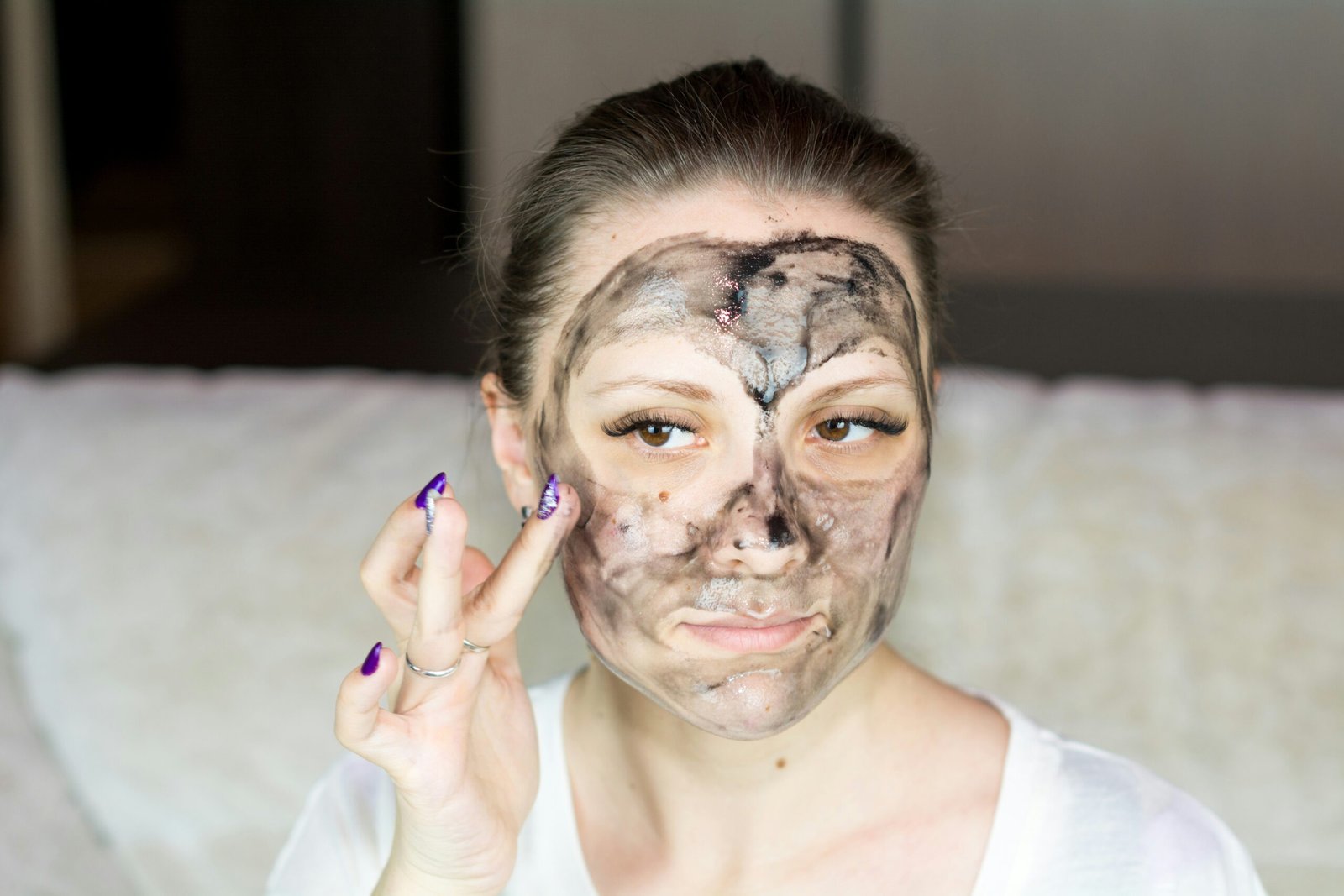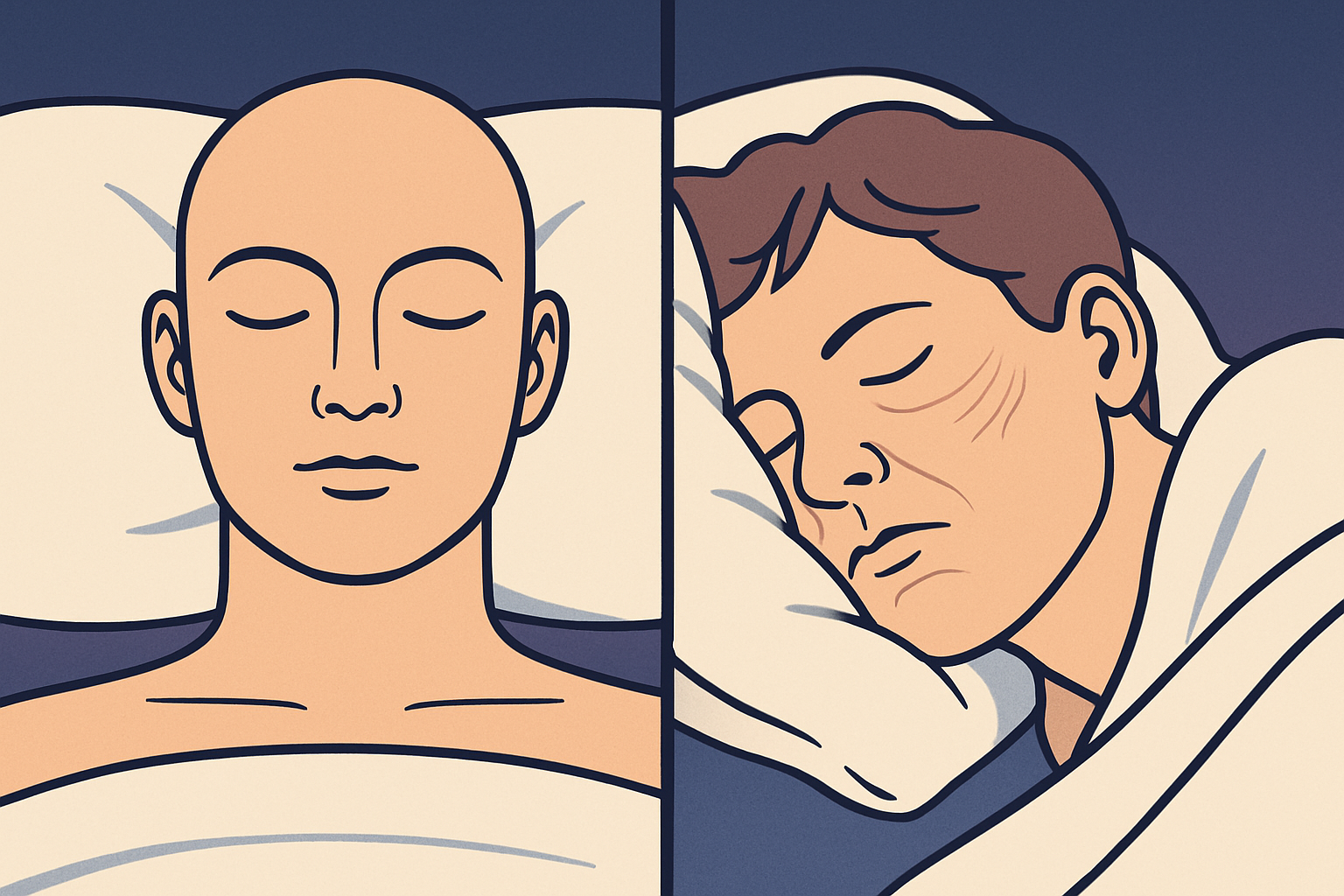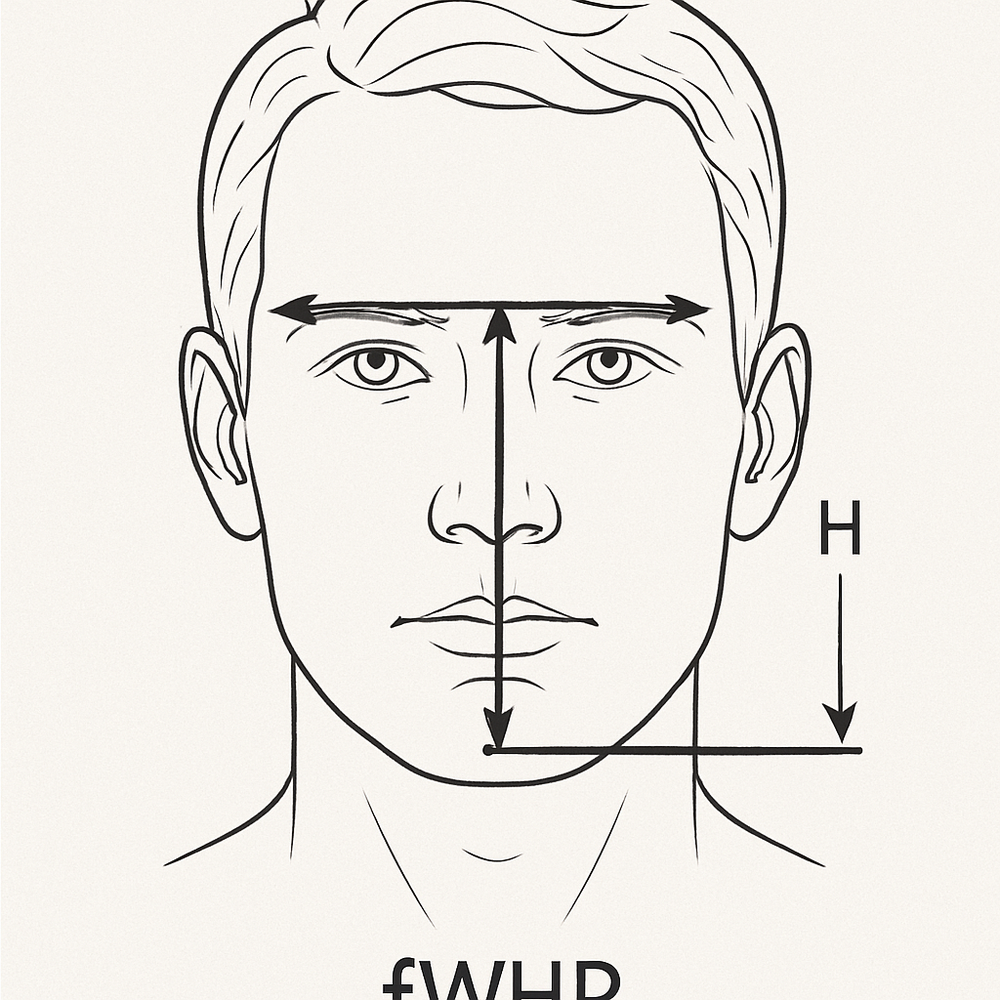Understanding Acne: Causes and Types
Acne is a common skin condition that affects millions of individuals worldwide. It manifests in various forms, including whiteheads, blackheads, and cystic acne, each with distinct characteristics and underlying causes. Understanding these variations is crucial for effective management and treatment.
Whiteheads and blackheads, often referred to as comedones, are among the most prevalent types of acne. Whiteheads are closed comedones with a white or flesh-colored appearance, while blackheads are open comedones with a dark surface caused by oxidation. Cystic acne, on the other hand, is more severe and painful, characterized by large, inflamed cysts that can lead to scarring if not properly treated.
The development of acne involves multiple factors, with hormone fluctuations playing a significant role. During puberty, increased androgen levels stimulate the sebaceous glands, resulting in excessive sebum production. This oil combines with dead skin cells, clogging the hair follicles and creating an environment conducive to bacterial growth, specifically Propionibacterium acnes, which leads to inflammation and acne formation.
Genetics also contribute to one’s susceptibility to acne. If your parents experienced acne, there is a higher likelihood that you will too. Furthermore, diet and environmental factors can exacerbate the condition. While the relationship between diet and acne is still debated, high-glycemic foods and dairy products have been implicated in worsening acne for some individuals. Environmental factors, such as pollution and humidity, can also clog pores and trigger breakouts.
There are several misconceptions about acne that need to be addressed. Firstly, acne is not solely a result of poor hygiene; excessive washing can actually irritate the skin and worsen the condition. Secondly, it is not restricted to teenagers; adults can also suffer from acne due to hormonal changes, stress, or other factors. Lastly, while over-the-counter treatments can be beneficial, persistent or severe acne often requires professional medical intervention.
In summary, acne is a multifaceted skin condition with various types and causes. Hormones, genetics, diet, and environmental factors all play significant roles in its development. Understanding these elements is essential for managing acne effectively and achieving clear, healthy skin.
Understanding the relationship between diet and skin health is crucial in the quest for a clear face and the natural management of acne. Scientific studies have increasingly shown that what we consume can significantly impact our skin’s condition. A balanced diet rich in vitamins and minerals is essential for maintaining clear and healthy skin.
Some foods are known to exacerbate acne, while others can help reduce its occurrence. Foods high in refined sugars and carbohydrates, such as white bread, sugary snacks, and soft drinks, can spike insulin levels, leading to increased oil production and acne breakouts. Similarly, dairy products, especially skim milk, have been linked to acne due to hormones present in milk that can stimulate the skin’s oil glands.
On the other hand, including foods rich in antioxidants, vitamins, and minerals can promote clearer skin. Omega-3 fatty acids, found in fish like salmon and mackerel, as well as flaxseeds and walnuts, have anti-inflammatory properties that can help combat acne. Fruits and vegetables, particularly those high in vitamins A and E, such as carrots, spinach, and sweet potatoes, are beneficial for skin health. Zinc-rich foods like pumpkin seeds, lentils, and chickpeas also play a role in reducing acne due to their anti-inflammatory and antibacterial effects.
To maintain clear skin, consider incorporating the following dietary tips into your meal planning:
– Increase your intake of fresh fruits and vegetables, aiming for a colorful variety to ensure a broad spectrum of nutrients.
– Add sources of lean protein, such as chicken, turkey, and plant-based options like tofu and legumes, to support skin repair and renewal.
– Opt for whole grains over refined grains to stabilize blood sugar levels and reduce acne flare-ups.
– Stay hydrated by drinking plenty of water, which helps flush out toxins and maintain skin hydration.
By focusing on a diet that emphasizes nutrient-dense foods and minimizes potential acne triggers, you can support your skin health naturally and effectively. This holistic approach not only aids in achieving a clean face but also promotes overall well-being.
Skincare Routine: Essential Steps for Clear Skin
An effective daily skincare routine is crucial for managing acne-prone skin and achieving a clean face. The foundation of any skincare regimen involves several essential steps: cleansing, exfoliating, toning, and moisturizing. Each of these steps plays a vital role in maintaining skin health and preventing acne breakouts.
First and foremost, cleansing is fundamental. It helps remove dirt, oil, and impurities that can clog pores and lead to acne. For best results, use a gentle, non-comedogenic cleanser that won’t block pores. Opt for natural ingredients like tea tree oil, known for its antibacterial properties, or honey, which has natural soothing and antimicrobial benefits. A simple DIY recipe involves mixing honey with a few drops of lemon juice for an effective yet gentle cleanser.
Exfoliation is the next key step. It involves removing dead skin cells that can accumulate on the skin’s surface and contribute to clogged pores. However, over-exfoliation can irritate the skin, so it’s best to exfoliate 2-3 times a week using mild, natural exfoliants. Ingredients like oatmeal or sugar mixed with a bit of olive oil can serve as excellent natural exfoliators. These ingredients help to slough off dead skin cells without causing damage or irritation.
Toning helps to balance the skin’s pH and tighten pores, reducing the likelihood of pimples and blackheads. Natural toners such as witch hazel or diluted apple cider vinegar can be very effective. Witch hazel has anti-inflammatory and astringent properties, while apple cider vinegar can help restore the skin’s natural acidity.
Moisturizing is equally important, even for acne-prone skin. A good moisturizer hydrates the skin without clogging pores. Look for non-comedogenic options that contain natural ingredients like aloe vera or jojoba oil. Aloe vera is known for its soothing and anti-inflammatory properties, whereas jojoba oil mimics the skin’s natural oils, helping to maintain balance.
By integrating these steps into your daily routine and choosing natural, non-comedogenic products, you can effectively manage acne and work towards achieving a clean, clear face. Simple DIY skincare recipes can provide gentle yet powerful alternatives to harsh chemicals, promoting healthier skin over time.
Hydration and Its Impact on Skin Health
Maintaining proper hydration is crucial for overall skin health and plays a significant role in acne prevention. Water is an essential component of skin cells, contributing to their structure and function. Adequate hydration helps in keeping the skin supple, elastic, and less prone to irritation and breakouts. When the skin is well-hydrated, it can better perform its barrier function, protecting against external pathogens and pollutants that may exacerbate acne.
One of the primary benefits of staying hydrated is its role in detoxification. Water assists in flushing out toxins and waste products from the body through urine and sweat. By promoting efficient detoxification, water helps to clear the skin from within, reducing the likelihood of clogged pores and inflammation, which are common culprits of acne.
Moreover, hydration supports the skin’s natural healing processes. Well-hydrated skin is more resilient and can recover more quickly from the damage caused by acne. It also helps to prevent the overproduction of sebum, the oily substance that can clog pores and lead to acne formation. By maintaining a balanced level of hydration, the skin can regulate oil production more effectively.
Increasing daily water intake can be achieved through several practical measures. Setting reminders to drink water throughout the day, carrying a reusable water bottle, and drinking a glass of water before each meal are simple yet effective strategies. Additionally, incorporating hydrating foods into the diet can significantly contribute to overall hydration levels. Fruits and vegetables such as cucumbers, watermelon, oranges, and strawberries have high water content and provide essential vitamins and minerals that support skin health.
Incorporating these habits into your daily routine can create a substantial impact on your skin’s appearance and health. By prioritizing hydration, you not only enhance the skin’s natural glow but also fortify its defenses against acne and other skin issues.
Stress Management and Its Role in Acne
Stress is a significant factor that can exacerbate acne and other skin conditions. The connection between stress and acne primarily involves stress hormones, such as cortisol, which can increase oil production in the skin and lead to clogged pores. This hormonal imbalance can trigger breakouts or worsen existing acne, making stress management an essential component in achieving clear skin.
One effective strategy for reducing stress is practicing mindfulness. Mindfulness involves staying present and fully engaging with the current moment, which can help reduce anxiety and stress levels. Techniques such as mindful breathing, body scans, and mindful meditation can be easily incorporated into daily routines to promote calmness and mental clarity.
Meditation is another powerful tool for stress reduction. Regular meditation practice can help lower cortisol levels, reduce inflammation, and improve overall mental well-being. Even dedicating just 10-15 minutes a day to meditation can have a profound impact on stress levels and, consequently, skin health.
Exercise is also crucial in managing stress and promoting a clear face. Physical activity releases endorphins, the body’s natural stress relievers, which can improve mood and reduce anxiety. Additionally, exercise increases blood flow, which helps nourish skin cells and keep them healthy. Aim for at least 30 minutes of moderate exercise, such as walking, jogging, or yoga, most days of the week to reap these benefits.
Adequate sleep is vital for both stress management and skin health. Lack of sleep can elevate stress levels and impair the body’s ability to repair and regenerate skin cells. Establishing a regular sleep schedule, creating a relaxing bedtime routine, and ensuring a comfortable sleep environment can significantly improve sleep quality and, in turn, skin condition.
Ultimately, mental well-being plays a crucial role in achieving and maintaining clear skin. By incorporating stress reduction techniques such as mindfulness, meditation, exercise, and ensuring adequate sleep, individuals can better manage stress and its impact on acne. Prioritizing mental health not only benefits overall well-being but also contributes to a cleaner, healthier complexion.
Natural Remedies and Treatments for Acne
Acne is a common skin condition that can be addressed through various natural remedies and treatments. These methods use ingredients that are often readily available at home, making them accessible and cost-effective. However, it’s important to understand both the benefits and potential risks associated with each treatment to use them effectively.
Essential Oils: Essential oils like tea tree oil and lavender oil are known for their antimicrobial and anti-inflammatory properties. Tea tree oil, in particular, is widely used for its ability to reduce acne lesions. To use tea tree oil, dilute it with a carrier oil (such as coconut or jojoba oil) before applying it to the affected area to avoid skin irritation. Lavender oil can similarly be diluted and applied to soothe inflamed skin and promote healing.
Herbal Treatments: Herbs such as witch hazel and green tea have been used for their skin-healing properties. Witch hazel acts as an astringent, helping to cleanse the skin and reduce inflammation. It can be applied directly to the skin using a cotton ball. Green tea, rich in antioxidants, can be used both topically and orally. Applying cooled green tea bags to the skin can reduce redness and inflammation, while drinking green tea may help improve overall skin health.
Home Remedies: Several home remedies can be effective in treating acne. Honey, particularly raw honey, has antibacterial properties that can help clear acne. Applying a thin layer of honey to the skin and leaving it on for about 20 minutes before rinsing can reduce acne and moisturize the skin. Aloe vera is another popular remedy known for its soothing and healing properties. Applying fresh aloe vera gel to acne-prone areas can reduce inflammation and promote faster healing.
While natural remedies can be beneficial, it’s crucial to conduct a patch test before applying any new treatment to your face to avoid adverse reactions. Consulting with a dermatologist can also provide personalized advice and ensure that these natural treatments complement any ongoing skincare regimen.
Achieving and maintaining healthy skin requires more than just topical treatments; it necessitates a holistic approach that includes lifestyle changes. One of the key factors influencing skin health is sleep. Consistently getting 7-9 hours of quality sleep each night allows the body to repair and rejuvenate, reducing stress levels and, consequently, the likelihood of acne. Establishing a regular sleep schedule can significantly benefit your complexion.
Physical activity is another crucial element in promoting long-term skin health. Regular exercise increases blood flow, which helps nourish skin cells and keep them vital. Additionally, sweating during physical activities can help unclog pores, provided that proper hygiene practices are followed post-exercise. It is essential to cleanse the skin thoroughly after sweating to prevent the buildup of dirt and oil, which can lead to acne.
Hygiene practices are foundational to maintaining a clean face. Washing your face twice daily with a gentle cleanser removes impurities and reduces the risk of clogged pores. Using clean towels and pillowcases can also prevent the transfer of bacteria and oils to the skin. Furthermore, it’s advisable to avoid touching your face frequently, as this can introduce new irritants and exacerbate existing skin issues.
Dietary habits also play a significant role in skin health. Consuming a balanced diet rich in fruits, vegetables, lean proteins, and whole grains provides essential nutrients that support skin health. Minimizing the intake of processed foods, sugars, and dairy can reduce inflammation and the occurrence of acne. Hydration is equally important; drinking adequate amounts of water helps maintain skin elasticity and flushes out toxins.
Consistency and patience are paramount when implementing these lifestyle changes. Results may not be immediate, but sustained efforts will yield noticeable improvements over time. By integrating these practices into your daily routine, you can enhance your skin’s health naturally and achieve a clearer, cleaner face.
When to Seek Professional Help
While many individuals find success in managing acne with natural remedies, there are instances when professional intervention becomes necessary. Understanding when to consult a dermatologist or healthcare professional can make a significant difference in achieving a clear and healthy complexion.
Signs that may indicate the need for professional help include severe acne that is characterized by deep cysts or nodules, persistent acne that does not respond to over-the-counter treatments, or acne that is causing significant emotional distress or scarring. If these conditions are present, seeking advice from a medical professional is crucial.
Dermatologists are equipped with a range of treatments that can effectively manage and treat acne. Prescription medications, such as topical retinoids, antibiotics, and oral contraceptives, are often employed to target the underlying causes of acne. These treatments can help reduce inflammation, control bacterial growth, and regulate hormone levels to prevent future breakouts.
In addition to medications, advanced procedures like laser therapy and chemical peels are available. Laser therapy targets the deeper layers of the skin to reduce the presence of acne-causing bacteria and stimulate collagen production, which can help improve skin texture and reduce scarring. Chemical peels, on the other hand, involve the application of a chemical solution to exfoliate the skin and promote the growth of new, smoother skin.
It is important to remember that professional treatments should be tailored to an individual’s specific skin type and condition. A dermatologist can provide a comprehensive assessment and recommend a personalized treatment plan. This approach ensures that the most effective methods are employed, minimizing potential side effects and maximizing the chances of achieving a clear and healthy face.
By recognizing the signs that warrant professional help and understanding the available treatment options, individuals can take proactive steps towards managing their acne effectively. Consulting a dermatologist not only addresses the immediate concerns but also equips individuals with the knowledge and resources to maintain long-term skin health.




